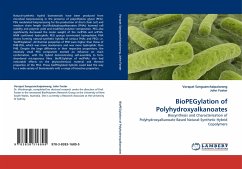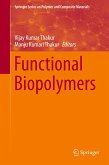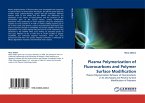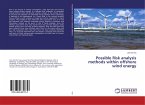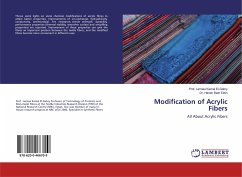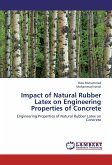Natural-synthetic hydrid biomaterials have been produced from microbial bioprocessing in the presence of polyethylene glycol (PEG). PEG modulated bioprocessing for the production of short chain (scl) and medium chain length (mcl)Polyhydroxyalkanoates (PHAs) lowered cell viability and polymer yield and modified polymer composition. PEG also significantly decreased the molar weight of the mclPHA and sclPHA. NMR confirmed hydrophilic PEG groups terminated hydrophobic PHA chains forming natural-synthetic hybrids of various PHAs and PEGs i.e. bioPEGylation'. All thermal properties of PHB were higher than those of PHB-PEG, which was more elastomeric and was more hydrophilic than PHB. Despite the large difference in their respective proportions, the relatively small PEG component exerted an influence on chain confirmation, with the hybrid demonstrating self-assembly to form disordered microporous films. BioPEGylation of mclPHAs also had noticeable effects on the physiochemical, material and thermal properties of the PHA. These bioPEGylated hybrids could lead the way for a wide variety of biomaterials with a range of bioactive properties.
Hinweis: Dieser Artikel kann nur an eine deutsche Lieferadresse ausgeliefert werden.
Hinweis: Dieser Artikel kann nur an eine deutsche Lieferadresse ausgeliefert werden.

